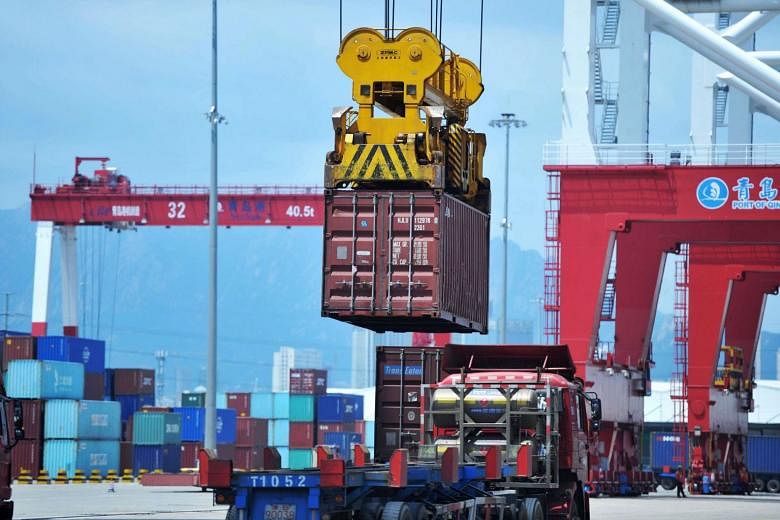TOKYO - The unfurling tit-for-tat tariffs trade war between the United States and China is a form of pushback by President Donald Trump's administration against growing Chinese dominance, experts said at a policy forum in Tokyo on Wednesday (Sept 12).
But the scholars also warned of the pitfalls in looking at politically-ideological debates simply through black-and-white lenses.
"In discussing US-China ties, it is easy for proponents of either side to retreat to ideological principles to justify their side," political scientist T.J. Pempel of the University of California, Berkeley, told the two-day Asia-Euro Policy Forum on Responding to Crises in East Asia.
"But while the notion of the 'rule of law' is something that the US likes to trot out on a regular basis, the US has been thumbing its nose at the rule of law," Professor Pempel said.
He cited as an example the US' threats on Monday against the International Criminal Court (ICC) - well-regarded as the legal flagship of the global rules-based order - if it were to prosecute Americans for alleged war crimes in Afghanistan.
Experts said the US and China are jostling to set the rules for a new order in East Asia, noting how Washington has been taking steps to assert its dominance over Beijing.
For one, it is in the defence of the rule of law at sea that the US is promulgating its own Free and Open Indo-Pacific Strategy. Japan, too, has its own strategy of the same name, but the US version is more overt in its aim to contain Chinese expansionism.
Dr Akihiko Tanaka, president of Japan's National Graduate Institute for Policy Studies, noted the serious concerns in the White House over China's high-tech industries as spelt out in the Made In China 2025 strategy. Under this blueprint, China has been developing new, high-tech industries to compete with and eventually replace foreign rivals both at home and abroad. Concerns abound that this technology will be used in spyware and defence.
But Dr Tanaka warned: "Made In China 2025 signals a very serious desire on the part of China and it might not be so easy for them to abandon their policies supporting this industrial plan. If so, the trade war may continue rather indefinitely."
Dr Mathieu Duchatel of the European Council for Foreign Relations added that China is "facing the early consequences of its direct and open challenge to the US supremacy", noting President Xi Jinping's declared road map for China to become a leading global power by 2050.
Even then, Dr Chen Dongxiao, president of Shanghai Institutes for International Studies, said geopolitics should not be viewed from the "prism of a power-shifting narrative, with the inevitable conclusion of a zero-sum game".
If both countries can set aside their mutual distrust to pursue an "inclusive, win-win" model, it will be for the clear benefit of the world, he added.


